Video games are a hobby enjoyed by millions of people from all walks of life. There’s a game out there for everyone, but not everyone who wants to participate in the hobby can.
People who live with disabilities that affect their vision, mobility or any other faculty you need to play video games as intended, don’t need to miss out on the fun.
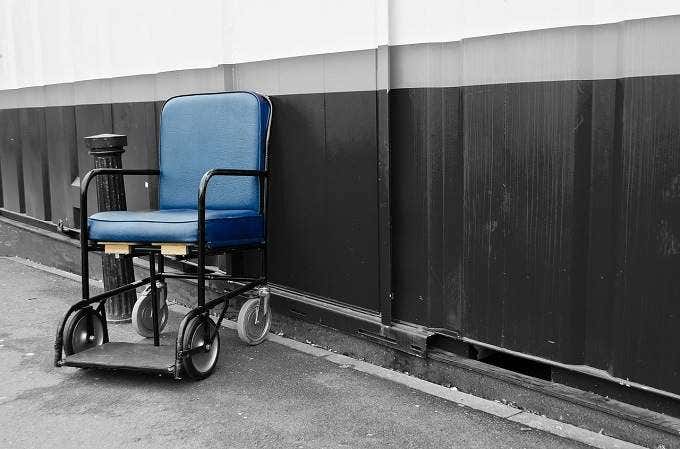
There are various options for gamers who deal with disabilities to help bridge the gap and get them back in the game. Every person’s disability is unique, but by combining several broad approaches, you can craft a unique solution for each situation.
Adaptive Gamepads
The common gamepad is a brilliant piece of engineering and design. So much so, that we often see them used for other purposes. Unfortunately, they also require plenty of coordination and dexterity, not to mention two hands with five fingers each!
The good news is that you can create your own custom gamepad solution using an adaptive gamepad. The only commercial option at the time of writing is the Microsoft adaptive Xbox One controller. It’s essentially a hub that can connect to a vast variety of devices that stand in for every button, trigger and control found on a standard Xbox controller.
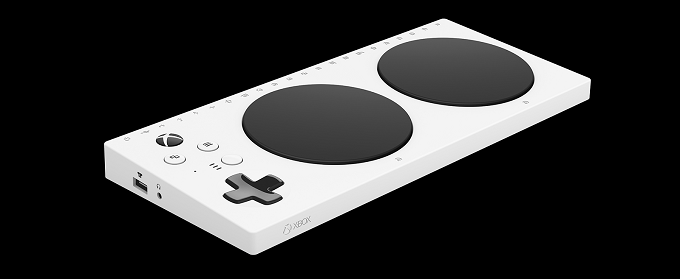
There are many example setups to find on the internet, which allows players with missing limbs and limited mobility to use every part of their body as a potential input source. Best of all, it’s compatible with any Xbox One game and, by extension, any Windows game that supports the standard controller!
Alternative Input Options
As the adaptive Xbox controller already demonstrates, there are a multitude of physical control options out there. We only need to think slightly outside of the box to see the vast number of ways you can tell a video game what to do.
For example, let’s say you don’t have the use of one of your hands, so playing a first-person shooter with a keyboard and mouse would prove difficult. What you could do is to operate the mouse with your working hand and use foot pedals to take over WASD functionality.
It might sound unintuitive, but it’s like learning to drive. After a while your custom control scheme will become second nature. There are people out there who have beaten Dark Souls with a Dance Revolution mat. Circle-strafing with foot pedals is nothing in comparison.
The list goes on and covers almost every body part. Voice control macros are pretty easy to set up using the right software. You can also get eye-tracking hardware for surprisingly little money these days. The trick is to focus on the parts of the body that still work well and then look for any control system designed to be operated by that body part. Seriously, there’s even a Kickstarter for what’s basically a butt controller.
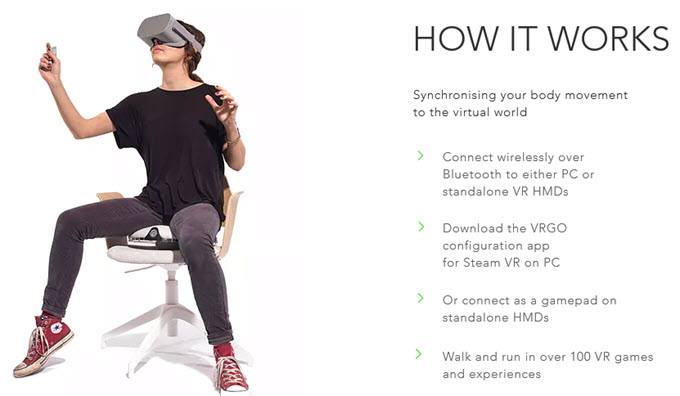
Accessibility Settings
Many developers are starting to realize that they need to take disabled gamers into account when creating their titles. For example, many games now come with a setting for color-blind users. It may also be possible to modify the user interface of a game by, for example, altering text sizes or the position of UI elements.
While we might not think of them as such, there are other settings common to most games that can also act as a sort of accessibility tweak. The first one that comes to mind is the game difficulty slider.
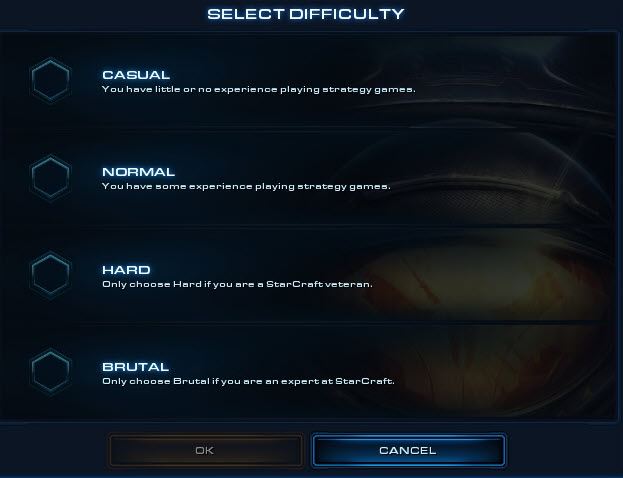
Setting the game to a lower difficulty can be a way to adapt the game for players with limited reaction times or mobility. There’s no such thing as a “correct” difficulty setting. Simply a level that’s fun, but challenging – as opposed to frustrating and unpleasant.
Control sensitivity and custom button mapping are also powerful ways to adapt a game even if only using a mouse and keyboard. Try to look at the settings that are provided within a particular game from an accessibility viewpoint and you may find some can be reimagined to help ease gameplay in many different ways.
3D Printing & Community Mods
While it’s great that adaptive gamepads are now a thing, there’s a long history of intrepid modders changing existing equipment to accommodate disabled players.
You can find any number of guides on YouTube and modding sites where buttons are moved or remapped on standard controllers. The widespread availability of 3D printing facilities means you can also download the plans for structural mods and print your own version of it.
There are also modding forums where you can ask for help in situations where a particular problem doesn’t seem to have an existing solution. There’s always an intrepid tinkerer out on the web who has the savvy to solve your unique challenges. The first step is putting the problem out there.
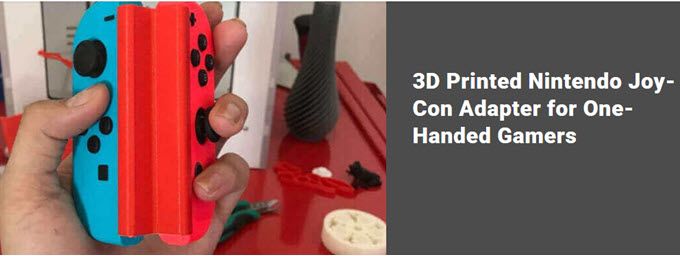
One great example is this simple one-handed Switch controller mod, a 3D-printed object that allows players to operate the console using just one hand. The original creator wanted to help a friend, but ended up helping everyone who only has the use of one hand and would love to play something like Breath of the Wild.
Smart Game Selection
While it might not be the most popular option, some gamers with disabilities might have to explore game genres that better suit their personal circumstances. For example, turn-based RPGs can have fantastic stories, great graphics and deep gameplay.

They just don’t rely on twitch reflexes in order to be playable. If you have trouble reading text because of a condition such as dyslexia on the other hand, avoiding text-heavy RPGs might be a better option.
Of course, every gamer has their own taste in game genre and mechanics. So don’t take this as advice to abandon the games you really want to play. Rather, it’s one strategy to finding titles that will provide the maximum amount of entertainment and fun, with the least frustration.
All Are Welcome
Gaming shouldn’t be a hobby reserved for the able-bodied alone. The most important thing is to be aware that there are always options for gamers who have unique challenges most of us don’t have to live with. Once you believe a solution is out there, chances are you’ll find it.